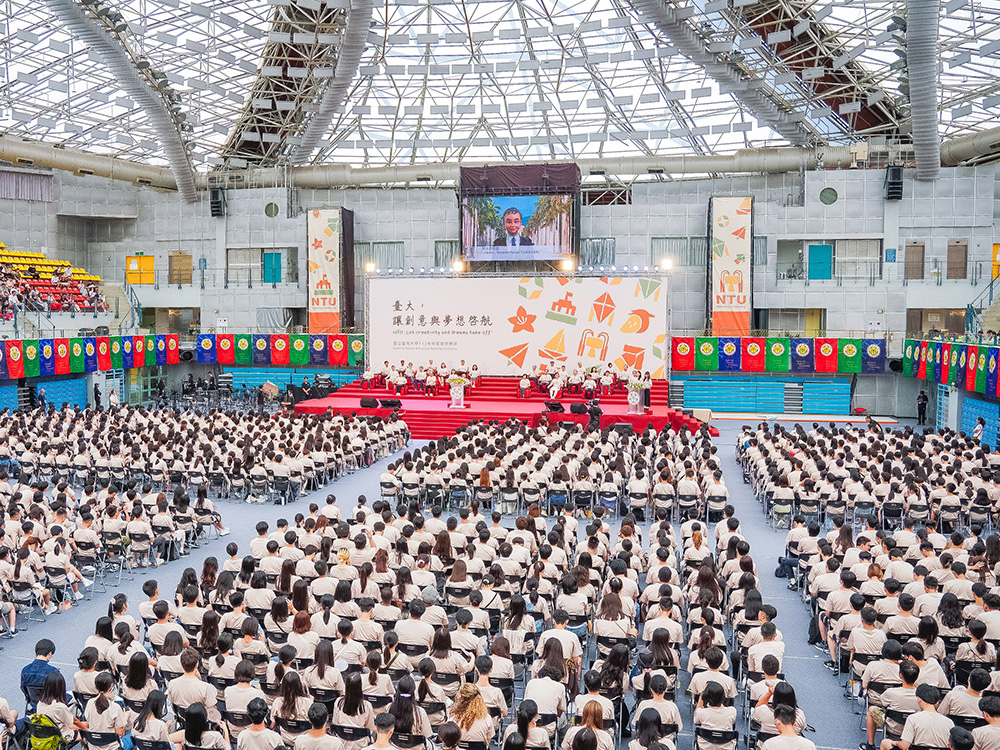
NTU Opening Ceremony: “Where Creativity and Dreams Take Flight”
瀏覽器版本過舊,或未開啟 javascript
請更新瀏覽器或啟用 javascript
Spotlights
Winners of the 12th (2019) Taiwan Outstanding Women in Science Awards (left to right): “Rising Talent” awardee Dr. Yi-Chia Chou, “Outstanding” award recipient Dr. Yng-Ing Lee, “Rising Talent” awardee Dr. Haojia Abby Ren, and doctoral student Hsiang Ying Chen, recipient of the Tsui-chu Meng Scholarship.
First of its kind and created specifically to honor women scientists in this country, the “Taiwan Outstanding Women in Science” awards ceremony has been in existence for 12 years running. Dubbed the “Nobel Prize for Women,” the awards represent academic excellence and signify the crucial importance of the contributions of their recipients. Dr. Yng-Ing Lee (李瑩英), Distinguished Professor of Mathematics, National Taiwan University, received the “Outstanding” award at the 2019 edition of the ceremony, while Associate Professor Haojia Abby Ren (任昊佳) of the Department of Geosciences was honored with the “Rising Talent” award at the same event.
A world-renowned mathematician and distinguished scholar in the field of geometric analysis, Dr. Yng-Ing Lee is a prolific researcher and a leading geometer in Taiwan. Geometric analysis was pioneered by Dr. Shing-Tung Yau (an Academician of Academia Sinica), who employed nonlinear analysis techniques to study the geometric properties of non-flat Riemannian manifolds or general space-time. Dr. Yau achieved a number of far-reaching results, including the proof of the Calabi conjecture and important contributions to the positive mass theorem, Poincaré conjecture and many problems that had defied solutions for a long time. Dr. Lee’s research interests include two areas. The first involves combining important Riemannian structures with symplectic structures to explore Lagrangian minimal submanifolds and special Lagrangian submanifolds, with important breakthroughs. The second is the research on mean curvature flow. Over a decade ago, the Russian mathematician Grigori Perelman proved the century-old Poincaré conjecture via the Ricci flow, with the mean curvature flow rate and the Ricci flow being the most important geometric flows. Dr. Lee constructed a variety of soliton solutions with distinct properties. These solutions were later proven to play a very important role, and they have not only led to interesting applications but also inspired a number of subsequent developments and research activities.
Dr. Lee has made considerable contribution to mathematics education in Taiwan. She took the initiative to revise the Grades 1–9 Curriculum Guidelines for mathematics on behalf of the Ministry of Education, working with a number of mathematics scholars and expert from 2000 to 2007. One of her objectives was to resolve the disputes and controversies arising from the policy of overwhelmingly favoring the teaching of constructivist (reform) mathematics at the time. Another goal was to avert the crisis of generally declining mathematical proficiency among students. In addition to being in charge of revising the highly problematic elementary school curriculum guidelines, Dr. Lee also presided over the plans of transitioning to the new guidelines to help students bridge the gap and make the necessary adjustments. She subsequently chaired the committee that oversaw the review and approval of elementary mathematics textbooks to ensure their quality and compliance with the new curriculum guidelines. Improvements were eventually achieved following years of efforts to rectify the issues. Moreover, for a quarter of a century Dr. Lee has been actively involved in services to the mathematical community, including organizing a number of widely recognized international academic conferences. During her tenure as Chair of the Department of Mathematics at NTU, Dr. Lee instituted a number of reforms and initiatives. Funds were raised to set up chair lectureships, prizes to recruit and retain talents were established, the pool of student scholarships was expanded, and special avenues for admitting students were created. Her leadership has not only had a profound influence on the department’s development but has also fostered many exceptional researchers and teachers in the field of geometry, many of whom have since taught at well-known universities in Taiwan and around the globe, passing on the enthusiasm for mathematical research to future generations.
While studying as a Ph.D. student, Dr. Haojia Abby Ren pioneered a precision method, to this day remaining a world-leading technique, to measure the composition of nitrogen isotopes in trace samples. The focus of Dr. Ren’s more recent research is on understanding the impact of natural and human activities on the ocean’s nitrogen cycle and productivity through coral and seabed sediment records, as well as on ways to make improvements without upsetting the delicate balance of life. Over the past three years working with samples collected from the South China Sea, Dr. Ren has been working to resolve several issues crucial to the understanding of the global ocean nitrogen cycle. Published in a May 2017 issue of Science, the results of her research came into the media spotlight here in Taiwan and abroad, as well as on various social media. Dr. Ren’s forward-thinking research has won recognition from academic circles around the world. In 2017, she was awarded the Ta-You Wu Memorial Award by the Ministry of Science and Technology (MOST) of Taiwan, and she delivered an Early Career Researcher Distinguished Lecture at the Asia Oceania Geosciences Society (AOGS) annual meeting. In 2018, Dr. Ren received a grant from the MOST Young Scholar Fellowship Program – Columbus Program, and she was honored by the American Geophysical Union with the Nanne Weber Early Career Award in Paleoceanography. Dr. Ren believes that the very essence of science is the exploration of the unknown. When confronted with hurdles and difficulties, one must choose between two clear choices: the first is to strive to overcome the obstacles and achieve the goals; the second is to simply give up. Once the decision has been made, she says, one must persevere until the very end.

NTU Opening Ceremony: “Where Creativity and Dreams Take Flight”
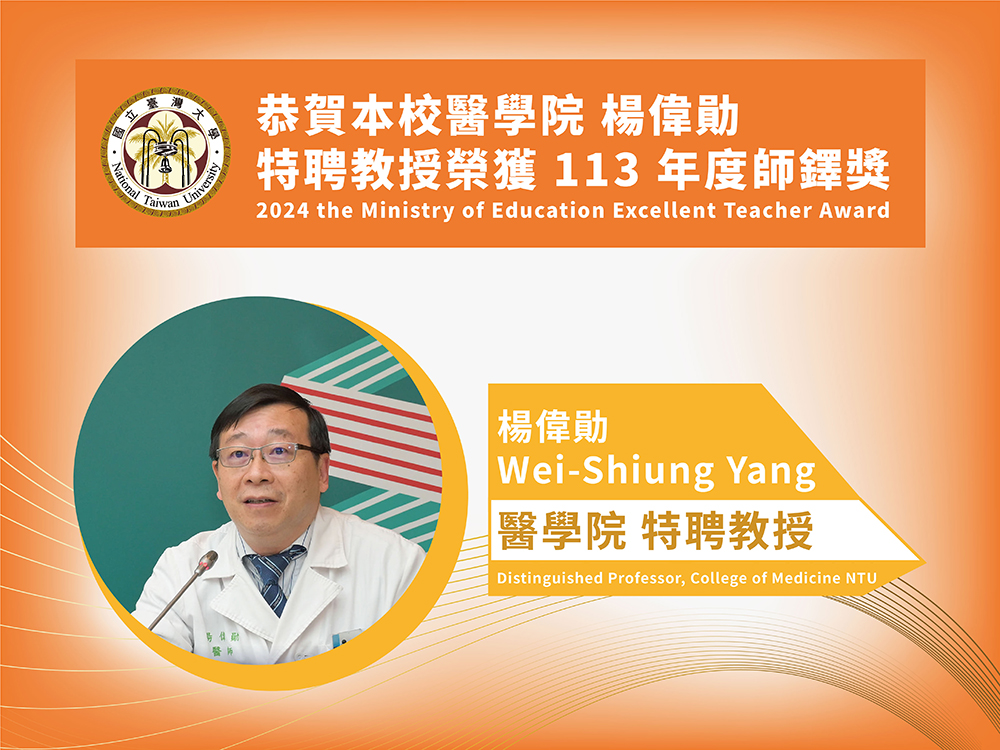
Prof. Wei-Shiung Yang wins MOE National Excellent Teacher Award
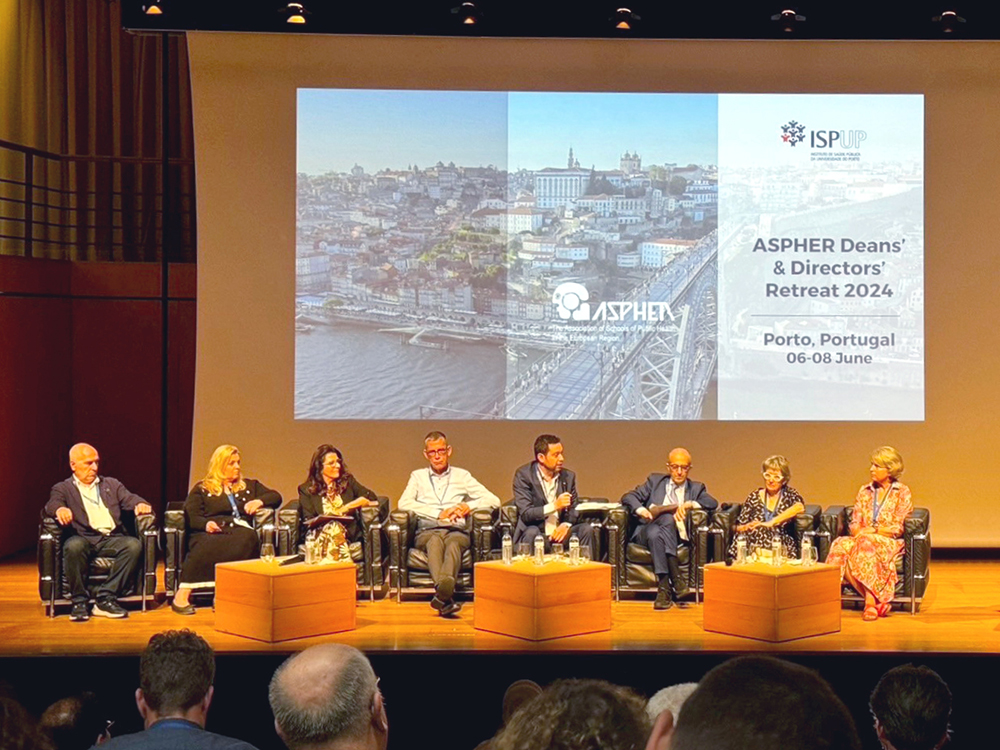
NTU College of Public Health's Global Health Program Joins the Association of Schools of Public Health in the European Region
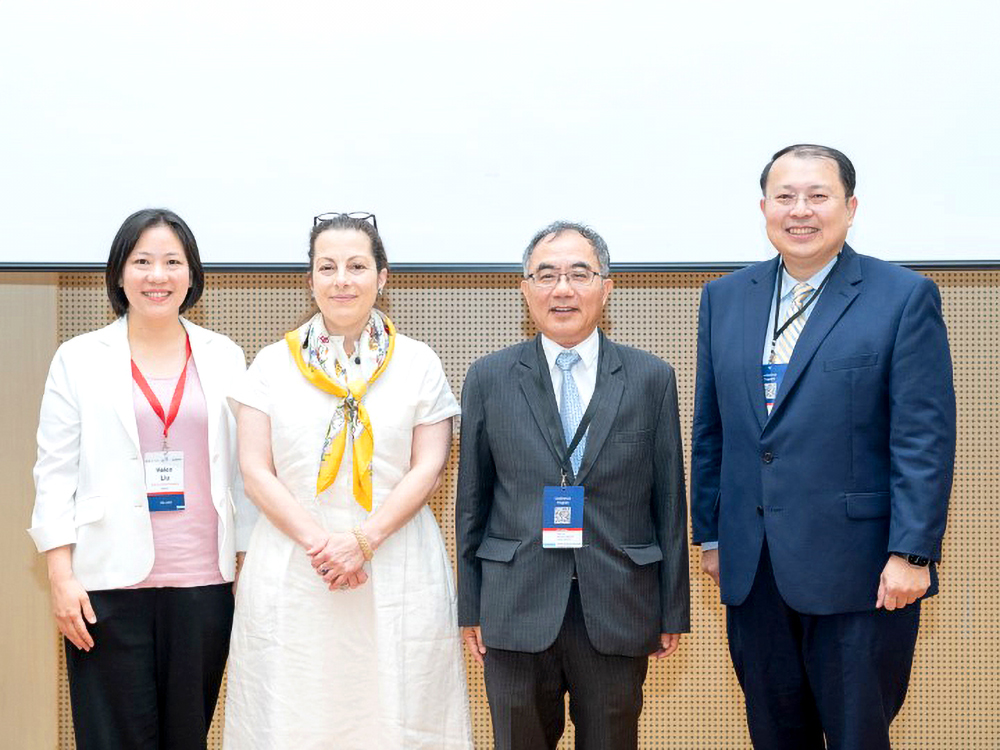
NTU hosts a successful dg.o 2024
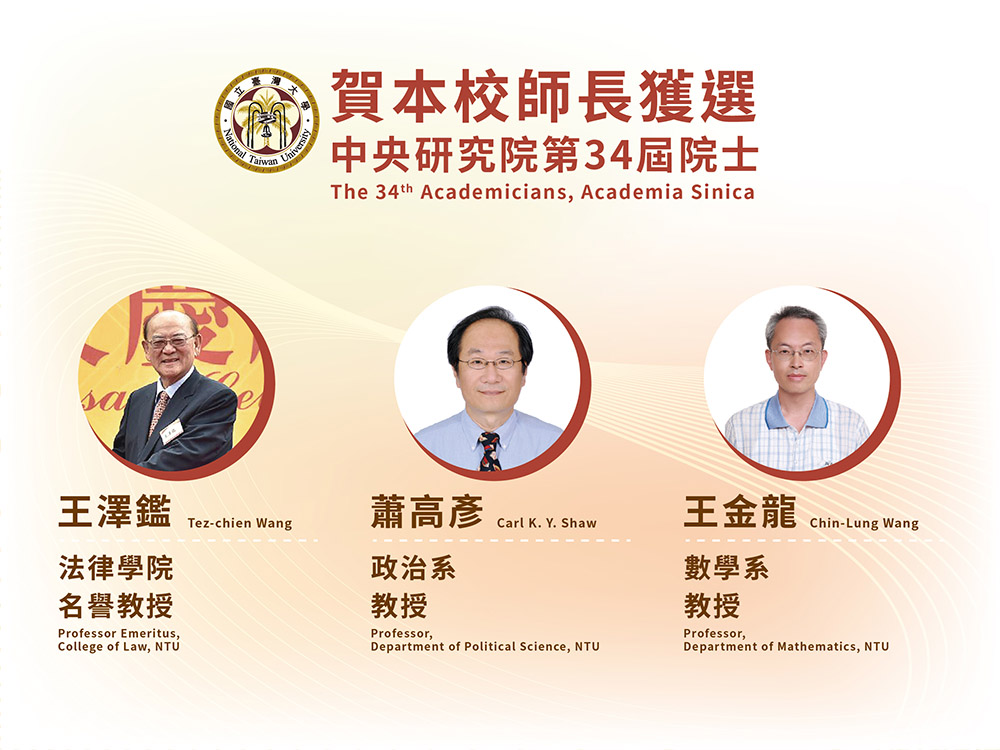
Congratulations to NTU faculty members elected as 34th AS academicians
Current Spotlights